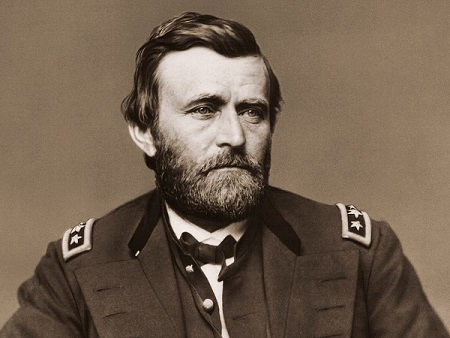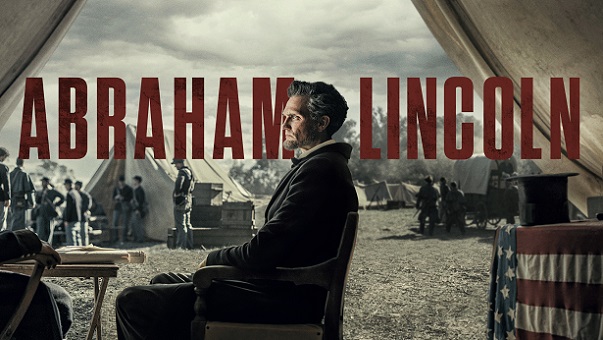The American pay television network History (formerly called The History Channel) aired the three-part documentary series Abraham Lincoln (2022) from Sunday, February 20th, 2022 through Tuesday, February 22nd, 2022. Directed by Malcolm Venville, the documentary offers a biographical look into the life of Abraham Lincoln, the sixteenth president on the United States. Doris Kearns Goodwin served as an executive producer for this Abraham Lincoln documentary. The Kearns Goodwin book Leadership: In Turbulent Times provided the basis for this documentary.

The three episodes of the documentary star Graham Sibley in the title role of Abraham Lincoln. Frederick Rendina had writing credits for all three episodes of the documentary, including The Railsplitter, A President at War and Saving the Union. Sundi Lofty had writing credit for A President at War. Rebecca Sue Haber had writing credit Saving the Union. The three episodes sought to offer insight into the formative and political thinking of Abraham Lincoln, the man, on the notions of slavery, race and the notion of equality. The record is not as romantic in this regard as one would hope, which is the mixed bag of truth about Lincoln and the country both then and now.

The Railsplitter episode that began this documentary looked heavily into the life of the sixteenth president of the United States during his formative years. As mentioned by the Internet Movie Database, the episode seeks to articulate Lincoln “[t]hrough a poverty-ridden childhood on the American frontier, [wherein] Lincoln is determined to leave his mark on the world.” Among other things, we are introduced to the president’s wife, Mary Todd Lincoln, as portrayed by Jenny Stead. It is of interest to learn of the dynamics of the president’s childhood, including the relationships with his father (Thomas Lincoln as portrayed by Steve Larter), his mother (Nancy Hanks Lincoln), his stepmother (Sarah Bush Johnston Lincoln as portrayed by Lucy Tops) and his neighbor Josiah Crawford. Deon Lotz portrayed Josiah Crawford, whose inclusion in the documentary offered an insight into personal responsibility for the young Abraham Lincoln. The history of lost political campaigns and the debates with Illinois senator Stephen A. Douglas, as portrayed by Richard Lothian, were insightful.

The second episode of the Abraham Lincoln, titled A President at War, sees a newly elected Lincoln become president. The first surprise was in the first Republican Party candidate win his party’s nomination and then the popular vote over William Seward, Salmon P. Chase, and Edward Bates. Seward, Chase and Bates, as portrayed by Colin Moss, Dirk Jonker and Robin Smith respectively, became members of Lincoln‘s presidential cabinet. With Lincoln‘s election came the secession of the states of South Carolina, Mississippi, Florida, Alabama, Georgia, Louisiana, and Texas as well as the threat of secession by Virginia, Arkansas, Tennessee, and North Carolina, the eleven states that formally made-up the Confederate States of America. Border states that were on the fence through the conduct of the war included Missouri, Kentucky, West Virginia, Maryland and Delaware.

The threat of disunion drove much of the politics through the war, as portrayed through friction evident between the president and abolitionist Frederick Douglass as portrayed by Stefan Adegbola; Douglass‘ escape from slavery to the north, as assisted by his future wife Anna Murray Douglass, was told during the opening two episodes of Abraham Lincoln with the portrayal by Nancy Sekhokoane. Friction between Lincoln and his generals, as this episode took pains to demonstrate included Lincoln learning to be commander in chief, included frustrations with getting George McClellan to take the military initiative through the course of the war. Sven Ruygrok portrayed McClellan. The portrayal of Elizabeth Keckley (alternatively spelled Elizabeth Keckly) by Megan Alexander gave depth beyond the Lincoln family anguish at the death of Willie Lincoln, as portrayed by Ben Smollan. Context for the Emancipation Proclamation was presented in this episode.

The documentary episode Saving the Union began with the second day of the Battle of Gettsyburg in Pennsylvania, having picked up from the recounting of the first day’s conflict with generals George Meade as portrayed by Nicky Rebelo and Robert E. Lee leading the competing armies. In Lincoln‘s estimation as demonstrated in the documentary, it was Meade‘s failure to promptly pursue Lee‘s defeated army before they crossed the Potomac River that prompted Meade‘s removal as general following the victory at Gettysburg. With the victory of forces led by Ulysses S. Grant at the Battle of Vicksburg granting commercial control of the Mississippi River to the north, Lincoln‘s perspective about ending the war then and there has merit.

Justin Salinger portrayed Grant, a future United States president who would assume command of the various armies of the Union war effort. The notions of slave emancipation, African Americans fighting in the army with delayed equal pay, and other abolitionist ambitions advocated by Frederick Douglass and others were given further context, with the narrative interpretations offered throughout the three episodes of this documentary, offered throughout. Other major themes addressed include the Gettysburg Address, the election of 1864 within the context of Grant‘s military leadership, Lincoln‘s second inaugural address, the president’s thoughts on Reconstruction and the period following the end of the America Civil War and finally the assassination of Abraham Lincoln five days after the surrender of Robert E. Lee‘s army of Northern Virginia at Appomattox Court House, in Appomattox County, Virginia.

Barack Obama, the 44th president of the United States, offered commentary and context interspersed with the dramatic presentations by actors. Historians Allen C. Guelzo, David S. Reynolds, Christy S. Coleman, Harold Holzer, Ted Widmer (aka Edward L Widmer) and Catherine Clinton, among others, added additional commentary and context through the three episodes of this documentary. The tone throughout the documentary felt even-handed and thoughtfully considered without being preachy, without reaching too far and offering context for where clear criticism and contextual problems with worldviews of the present day clearly exist. I give the documentary Abraham Lincoln as directed by Malcolm Venville 4-stars on a scale of 1-to-5 for its quality.
Matt – Wednesday, February 23, 2022
